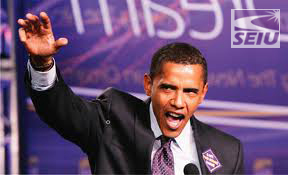Presidential Power Abused at Big Labor's Behest
Right to Work Fights Back Against 'Illegal' NLRB Appointments (source: National Right To Work Committee February 2012 Newsletter) Under Article II, Section 2 of the U.S. Constitution, the President has the power to appoint "officers of the United States," but only "by and with the advice and consent of the Senate." The Constitution makes it clear that only in cases when "vacancies . . . happen during recesses of the Senate" may the President make temporary "recess" appointments to offices that normally require confirmation by Congress's upper chamber. Unfortunately, in his eagerness to please union officials Inside the D.C. Beltway, a tiny but crucial constituency for his re-election bid this year, Democratic President Barack Obama is now seeking to render the Constitution's "advice and consent" requirement for executive appointments effectively meaningless. Early this January, the Senate was not in recess. For several weeks starting last December 20, the Senate was instead in a "pro forma" session during which it did not meet every day, but did periodically conduct business under "unanimous consent" agreements. No one can reasonably argue that this "pro forma" session was tantamount to a recess. Article I, Section 5 of the Constitution states that neither the House nor the Senate may over the course of a Congress "adjourn for more than three days" without "the consent of the other." A La Humpty Dumpty, Mr. Obama Insists 'Recess' Means Whatever He Says It Means As syndicated columnist Michael Barone has explained: "The House did not consent to the adjournment of the Senate this year, so there is no recess, and hence no constitutional authority to make recess appointments."





